Starting off with Preventive Health Checkups: What You Need to Know, this introductory paragraph aims to grab the readers' attention by highlighting the importance of regular checkups and their impact on overall well-being.
The following paragraph will delve into the various types of preventive health checkups and their benefits in detail.
Importance of Preventive Health Checkups
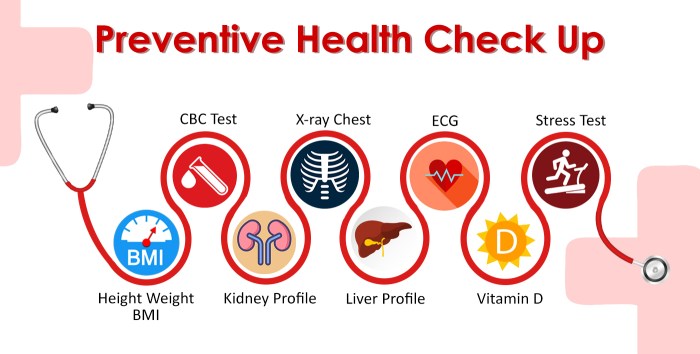
Regular preventive health checkups play a crucial role in maintaining overall well-being by detecting potential health issues early and preventing diseases before they progress. These checkups not only help in identifying underlying health conditions but also enable individuals to take necessary actions to improve their health and quality of life.
Examples of Common Preventive Health Checkups and Their Benefits
- Annual Physical Exams: Regular physical exams can help detect any changes in your health status, allowing for early intervention and treatment if necessary.
- Screenings for Chronic Diseases: Tests like blood pressure, cholesterol, and blood sugar screenings can help identify risk factors for conditions like heart disease, diabetes, and hypertension.
- Cancer Screenings: Screenings for breast, cervical, prostate, and colon cancers can detect cancer in its early stages when treatment is most effective.
Preventive health checkups can significantly reduce healthcare costs by addressing health issues before they escalate into more serious conditions.
Statistics Showing the Impact of Regular Checkups on Health Outcomes
- A study published in the Journal of the American Medical Association found that individuals who received regular checkups had lower overall healthcare costs and better health outcomes compared to those who did not.
- According to the Centers for Disease Control and Prevention, preventive screenings can prevent up to 70% of premature deaths from chronic diseases.
Types of Preventive Health Checkups
Regular preventive health checkups are essential for maintaining overall well-being and catching potential health issues early. There are several types of preventive health checkups available to cater to different aspects of health and wellness.
Physical Exams
Physical exams involve a thorough evaluation of your overall health by a healthcare provider. This may include checking vital signs, examining the body for any abnormalities, and discussing your medical history. Physical exams are recommended for individuals of all ages to assess their general health status.
Screenings
Screenings are specific tests or procedures conducted to detect potential health problems before symptoms appear. Examples of screenings include mammograms for breast cancer, colonoscopies for colorectal cancer, and blood pressure checks for hypertension. Screening tests are typically recommended based on age, gender, and risk factors.
Vaccinations
Vaccinations are preventive measures that protect against infectious diseases by stimulating the immune system to produce antibodies. Common vaccinations include the flu shot, tetanus vaccine, and HPV vaccine. Vaccinations are crucial for preventing the spread of contagious diseases and maintaining community immunity.
Comparing and Contrasting Benefits
- Physical exams provide a comprehensive assessment of overall health, while screenings target specific conditions.
- Screenings can help detect diseases early when they are more treatable, while vaccinations prevent diseases from occurring in the first place.
- Regular physical exams are recommended for everyone, while screenings and vaccinations are tailored to individual risk factors and age groups.
Frequency and Timing of Checkups
Regular preventive health checkups are crucial for maintaining overall well-being and catching any potential health issues early on. The frequency and timing of these checkups can vary based on several factors, including age, gender, family history, and lifestyle choices. It is important to schedule checkups at the right intervals to ensure maximum effectiveness in monitoring and promoting good health.
Age-Based Guidelines
- Children and Adolescents: Annual checkups are recommended to monitor growth and development, as well as to administer necessary vaccinations.
- Adults (18-64 years): Checkups every 1-3 years, depending on individual health status, risk factors, and previous findings.
- Elderly (65+ years): Annual checkups are typically advised to monitor age-related health conditions and ensure timely interventions.
Gender-Specific Recommendations
- Women: In addition to general checkups, women should undergo regular screenings such as Pap smears, mammograms, and bone density tests as per guidelines.
- Men: Routine checkups should include screenings for conditions like prostate cancer and heart disease, tailored to individual risk factors.
Family History and Lifestyle Factors
- Individuals with a family history of certain diseases may need more frequent screenings and checkups to detect any genetic predispositions early on.
- Lifestyle factors such as smoking, poor diet, lack of exercise, and high stress levels can impact overall health and may necessitate more frequent monitoring through checkups.
Cost and Insurance Coverage
When it comes to preventive health checkups, understanding the costs involved and how insurance coverage works is crucial for managing your healthcare expenses.
Costs Associated with Preventive Health Checkups
Preventive health checkups can vary in cost depending on the type of tests and screenings involved. Some basic preventive services may be covered by insurance plans, while more specialized tests may incur out-of-pocket expenses. It is important to check with your healthcare provider or insurance company to understand the costs associated with specific preventive health checkups.
Insurance Coverage for Preventive Care
Many insurance plans, including Medicare and private insurance providers, offer coverage for preventive care services. This coverage often includes screenings, vaccinations, counseling, and other preventive services recommended by healthcare professionals. It is essential to review your insurance policy to determine what preventive services are covered and if any copayments or deductibles apply.
Finding Affordable Options
For individuals without insurance coverage, there are still options available to access affordable preventive health checkups. Community health clinics, local health departments, and nonprofit organizations may offer low-cost or free preventive services. Additionally, some pharmacies and retail clinics provide affordable screenings for common health conditions.
It is recommended to research and inquire about these options in your area to find the most cost-effective preventive health checkups.
Preparation for Health Checkups
Preparing for a health checkup is essential to ensure accurate results and make the most of your appointment. It involves taking certain steps and providing relevant information to your healthcare provider.
Importance of Bringing Relevant Medical History
Before your health checkup, it is crucial to gather and bring along any relevant medical history and information. This includes previous test results, current medications, allergies, and any existing health conditions. Providing this information will help your healthcare provider assess your overall health more effectively and make informed decisions.
Checklist of Things to Do Before the Checkup
- Compile a list of current medications, including dosages.
- Bring any previous test results or medical reports.
- Prepare a list of questions or concerns to discuss with your healthcare provider.
- Fast, if required, as instructed by your healthcare provider for certain tests.
- Wear comfortable clothing and avoid heavy meals before the checkup.
Benefits of Early Detection
Early detection through preventive health checkups offers numerous benefits that can significantly impact an individual's health and well-being. By identifying potential health issues at an early stage, individuals can take proactive steps to manage and treat these conditions effectively, leading to improved health outcomes and quality of life.
Conditions that can be Detected Early
- High blood pressure: Regular checkups can help detect high blood pressure early, allowing for timely interventions to prevent complications such as heart disease and stroke.
- Diabetes: Screening tests can identify diabetes in its early stages, enabling individuals to make lifestyle changes and receive appropriate treatment to manage the condition effectively.
- Cancer: Many types of cancer, such as breast, colorectal, and cervical cancer, can be detected early through screenings, increasing the chances of successful treatment and recovery.
Improved Treatment Outcomes
- Early detection of health issues often leads to more effective treatment options, as conditions can be addressed before they progress to more advanced stages.
- Individuals diagnosed early with chronic conditions can benefit from early interventions, lifestyle modifications, and medications to better manage their health and prevent complications.
Enhanced Quality of Life
- Timely detection and management of health conditions can result in improved overall health and well-being, allowing individuals to lead a more active and fulfilling life.
- Early treatment can reduce the impact of certain health conditions on daily activities, mental health, and overall quality of life, promoting a healthier and happier lifestyle.
Final Thoughts
Concluding our discussion on Preventive Health Checkups: What You Need to Know, it's clear that regular screenings and early detection play a crucial role in maintaining good health.
Commonly Asked Questions
How often should I undergo preventive health checkups?
It is recommended to have an annual checkup, but the frequency may vary based on age, gender, and risk factors.
Are preventive health checkups covered by insurance?
Many insurance plans cover preventive care, but it's important to check with your provider to understand what is included in your policy.
What should I bring to a preventive health checkup?
It's essential to bring your medical history, a list of current medications, and any questions you may have for your healthcare provider.

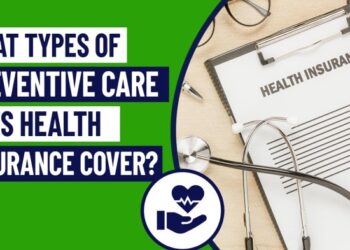
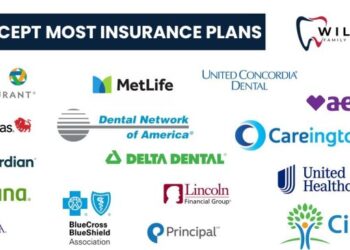

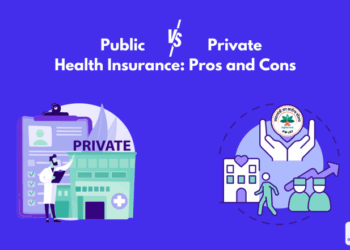
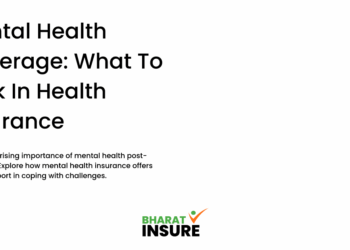



![Sleep Statistics By Mental Health and Facts [2024*]](https://br.genpi.co/wp-content/uploads/2025/09/VaNVZ-health-issue-impacting-sleep-350x250.png)